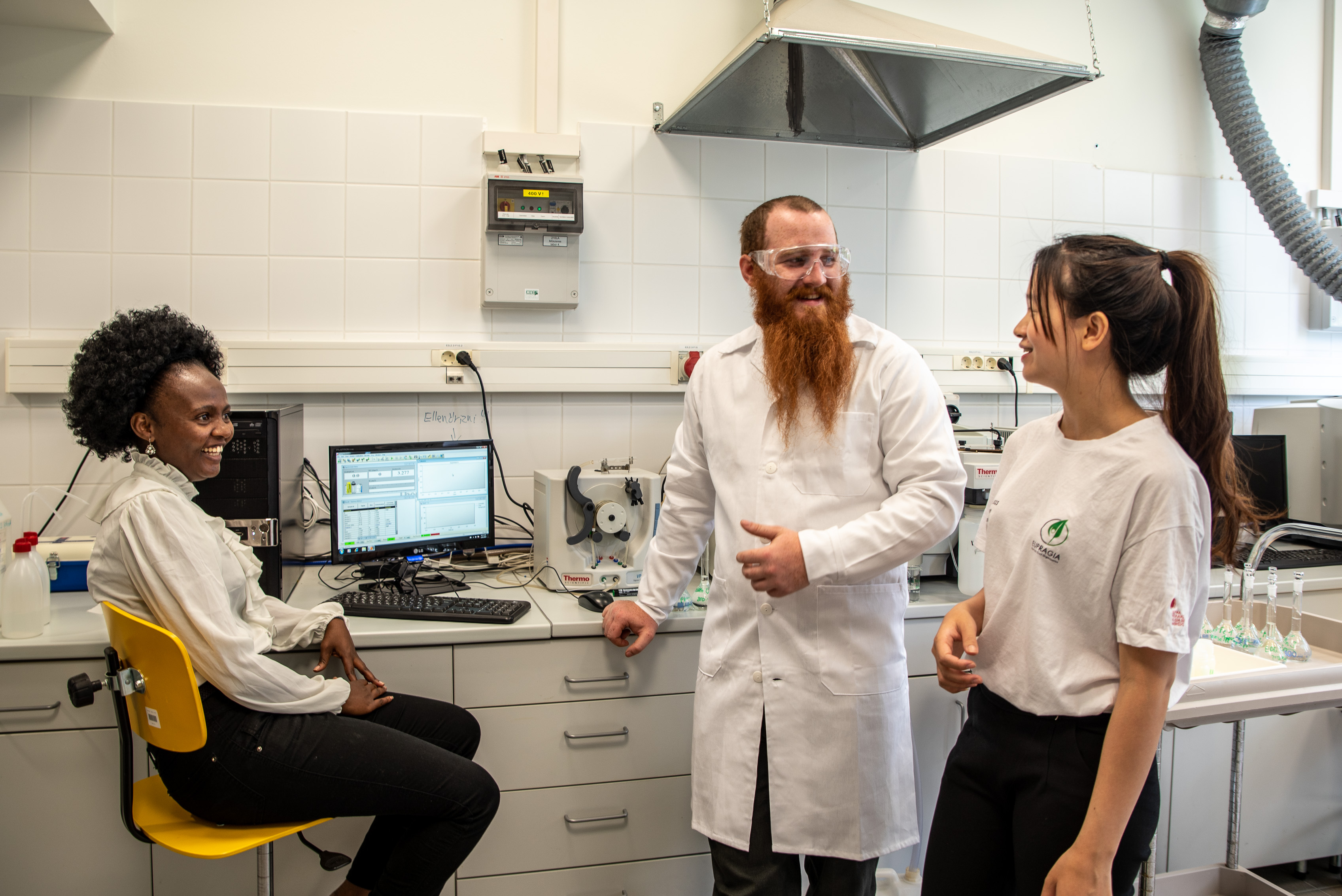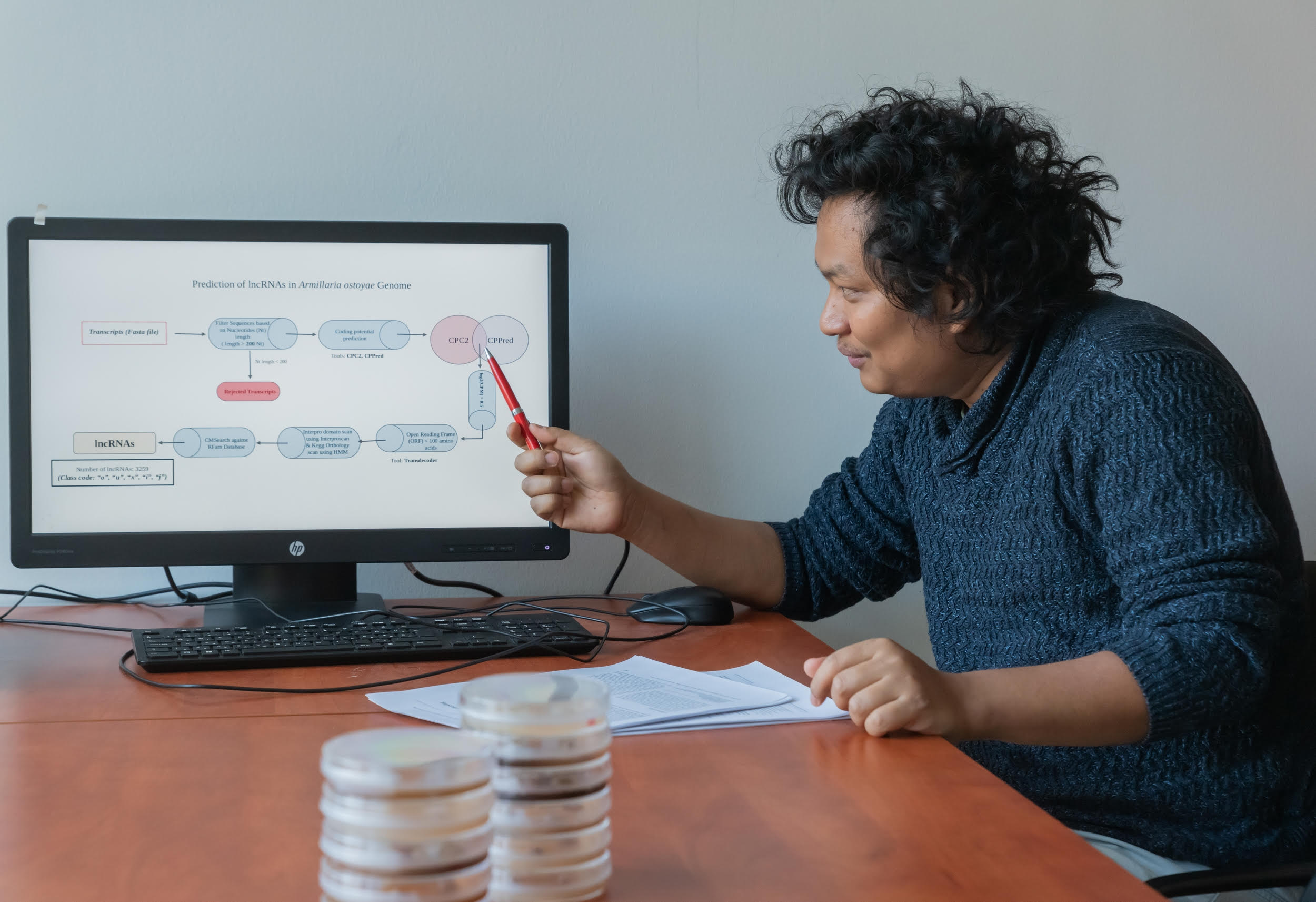Unifying Biology, Informatics, and GIS for Future Innovations
Programme Overview
 The MSc in Geobioinformatics at the University of Sopron equips students with cutting-edge skills at the intersection of biology, geoinformatics, and bioinformatics. The program focuses on harnessing the synergies between these disciplines, enabling students to analyze and interpret geographical and biological data for practical applications in forestry, agriculture, nature conservation, and public health.
The MSc in Geobioinformatics at the University of Sopron equips students with cutting-edge skills at the intersection of biology, geoinformatics, and bioinformatics. The program focuses on harnessing the synergies between these disciplines, enabling students to analyze and interpret geographical and biological data for practical applications in forestry, agriculture, nature conservation, and public health.
Graduates will master advanced methodologies in molecular biology, bioinformatics, data visualization, and GIS, preparing them for PhD studies or impactful careers in research and industry.
| General information | |
| Duration: | 2 semesters |
| Tuition fee: | 2750 USD / semester |
| Study mode: | full time |
| Intake: | September |
| Application period - self financed: |
From 1 March to...
|
| Application period - Stipendium Hungaricum scholarship: | mid November - mid January |
| Language of Instruction: | English |
| Faculty: | Faculty of Forestry |
Program Goals
The MSc in Geobioinformatics aims to train experts capable of:
- Analyzing geographical and biological data.
- Utilizing GIS and bioinformatics to monitor and model environmental and biological processes.
- Applying advanced molecular biology techniques to solve complex problems.
- Exploring interdisciplinary applications, such as disease-related trends, forestry, agriculture, and conservation.
Core Curriculum
The program covers a broad spectrum of compulsory courses and optional subjects, including:
First Semester:
- Modern Molecular Biology: Explore the foundations of molecular biology and its practical applications.
- IT Basics and Databases: Learn essential IT tools and database management for bioinformatics and GIS.
- Data Analysis and Visualization: Develop skills in processing and visualizing complex datasets.
- GIS (Geographic Information Systems): Master the principles and applications of geospatial analysis.
- Introduction to Bioinformatics: Gain foundational knowledge in bioinformatics methodologies.
- Management and Publication: Learn how to manage projects and effectively communicate scientific findings.
Second Semester:
- Biological Applications of Bioinformatics: Apply bioinformatics to solve real-world biological problems.
- Machine Learning: Leverage machine learning techniques for data analysis and predictive modeling.
- Remote Sensing: Use satellite and aerial data to analyze environmental changes.
- Sequence and Structural Bioinformatics: Study molecular sequences and structures to understand biological systems.
- Latest Bioinformatics Research: Stay updated with advancements in bioinformatics.
- Master's Thesis: Undertake a research project guided by faculty mentors.
Optional Subjects:
Students can further tailor their education by choosing electives, such as:
- Environmental modeling
- Applied soil science
- Advanced bioinformatics techniques
Key Competencies Developed
Graduates of this program will:
- Gain theoretical and practical expertise in modern molecular biology and bioinformatics.
- Develop advanced skills in geoinformatics, machine learning, and data visualization.
- Master the integration of geographical and biological data for research and decision-making.
- Build models to monitor environmental and health-related trends.
- Communicate scientific findings effectively through management and publication training.
 Career Opportunities
Career Opportunities
Graduates of the MSc in Geobioinformatics program will find opportunities in:
- Research institutions and academia.
- Multinational companies in biotechnology, informatics, and environmental consulting.
- Public health and disease monitoring organizations.
- Forestry, agriculture, and nature conservation sectors.
Online Application for MA/MSc Programs
Applicants to the University of Sopron's English-taught MA/MSc programs must provide the following:
- BA/BSc Certificate (Biology, Chemistry or Informatics): Provide a copy in English or German.
- Transcript of Records: Upload your academic records in English or German.
- Passport Copy: Ensure clarity and validity.
- Proof of English Proficiency:
- A valid English proficiency certificate at B2 level or higher, such as TOEFL, IELTS, Cambridge English Qualifications (FCE or higher), Oxford Test of English (OTE) or other internationally recognized English tests, or
- Medium of Instruction Certificate (if applicable).
- Note: Native English speakers are exempt from this requirement.
- Application Fee Payment Confirmation: Upload the receipt.
- Optional Documents: Add recommendation letters, motivation letters, or a CV.
Important: If any document is not in English or German, attach a certified translation.
Why Choose Us?
The Faculty of Forestry at the University of Sopron is a renowned institution that combines tradition with innovation. With access to state-of-the-art facilities and internationally experienced faculty, students will gain the skills necessary to address today’s global challenges.
Elevate your expertise at the forefront of biology, informatics, and geoinformatics with the MSc in Geobioinformatics at the University of Sopron.
Contact the Faculty of Forestry:
Dr. Ferenc Facskó PhD
Coordinator, Faculty of Forestry
📞 +36 (99) 518-258
✉️ facsko.ferenc@uni-sopron.hu








